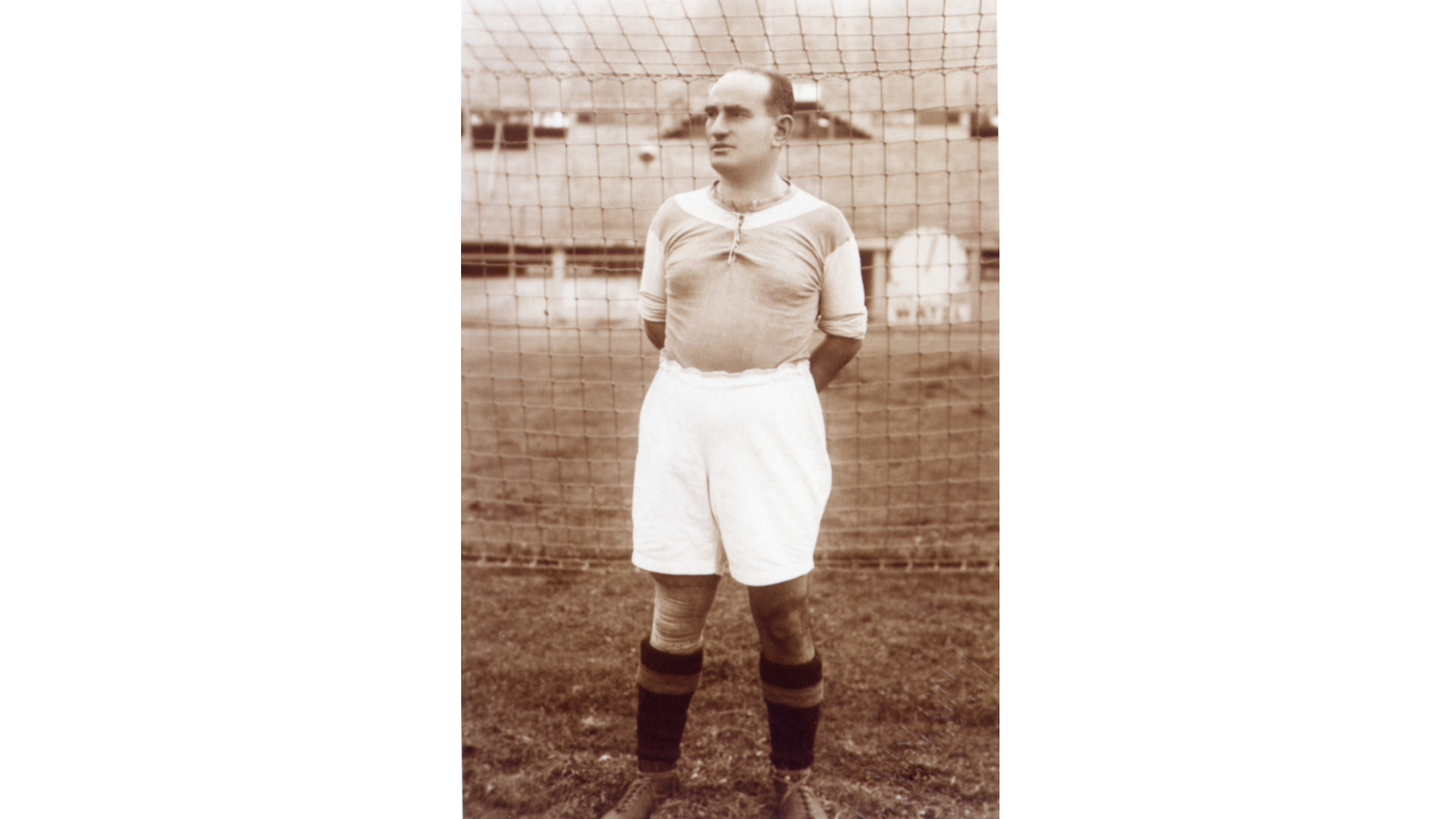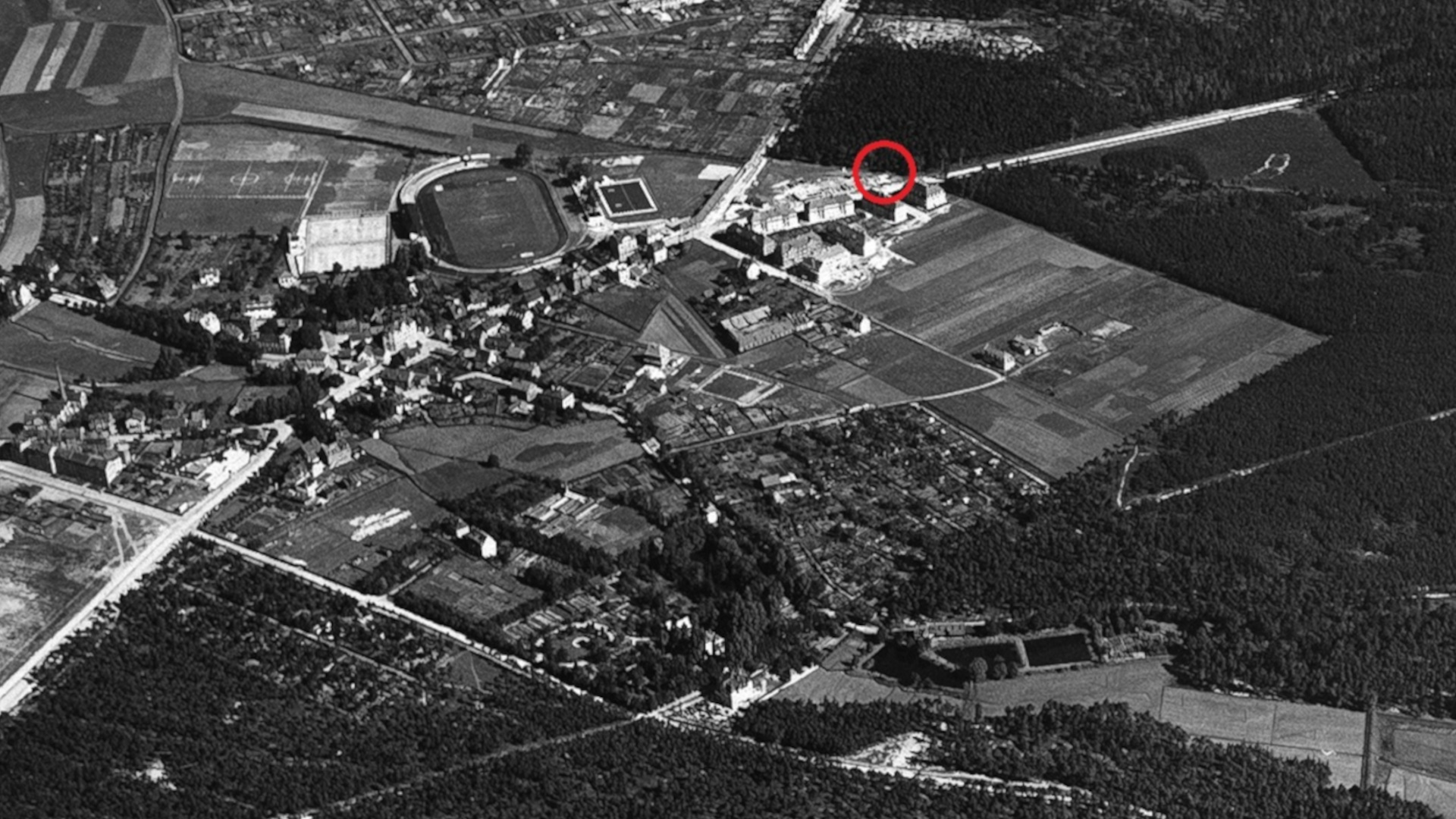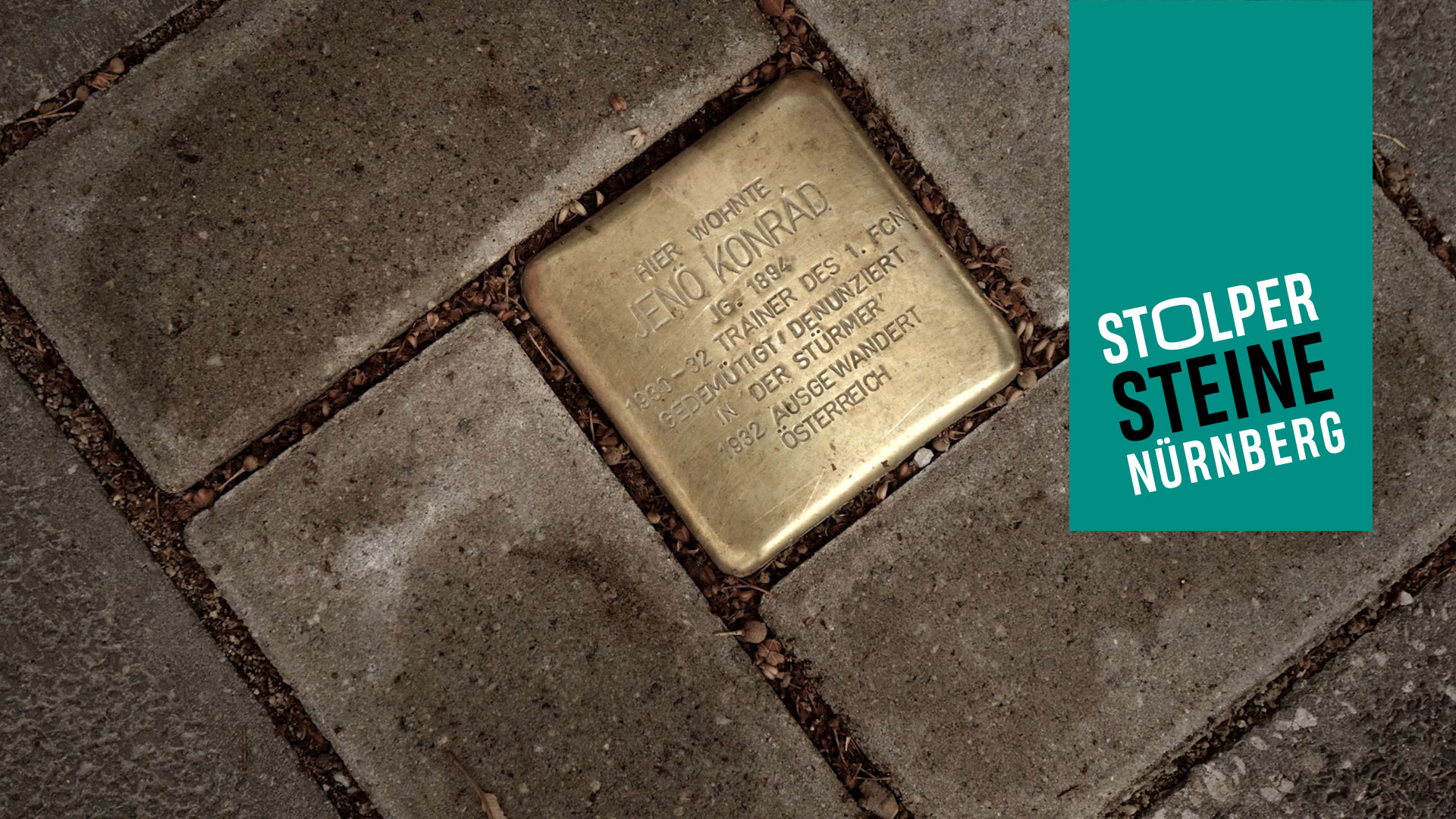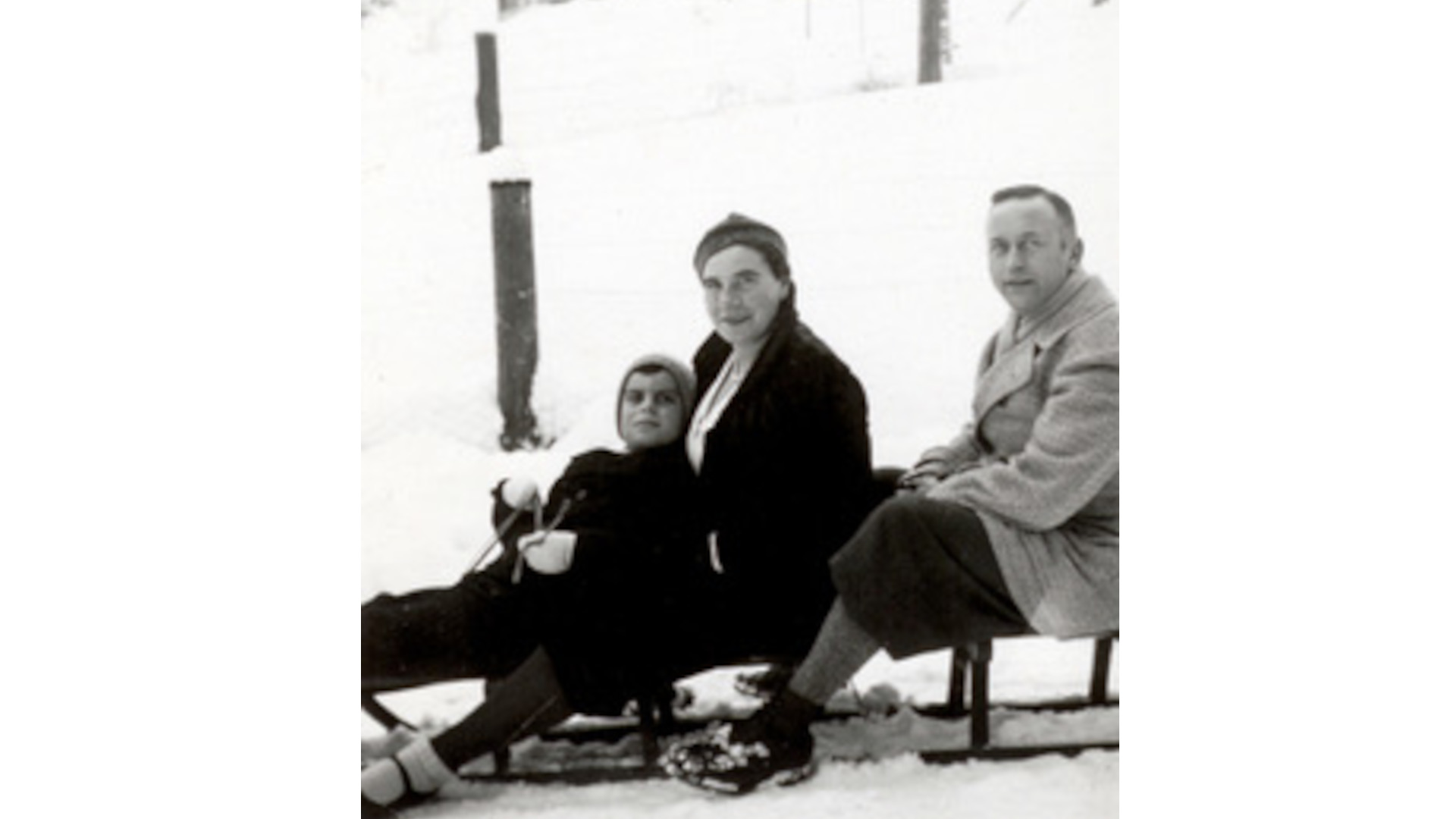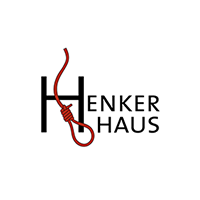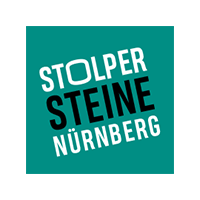| Location of stone: Bingstraße 9 | District: Zerzabelshof |
| Sponsor: Sonderpädagogisches Förderzentrum (Special Educational Centre) Jean-Paul Platz | Laying of stone: 26 June 2022 |
Biography
On 26 June 2022 Gunter Demnig laid ten stumbling stones at eight different locations in the city. Instigated by a class from the Sonderpädagogisches Förderzentrum Jean-Paul Platz and Nuremberg Football Club, two stones were laid for the former trainer Jenő Konrád: one in front of his former house and another in front of the stadium. Following anti-Semitic hostilities, Konrád managed to get himself and his family out of the “German Reich” to safety.
Jenő Konrád was born on 13 August 1894 in Palanka. At that time the city belonged to Austria-Hungary and today it is part of Serbia.
As a footballer he was very successful in his youth, playing for MTK Budapest, one of the best European teams in the 1920s. After the First World War, he won championships and titles with Viennese teams, first as an amateur, then as a professional – when professional football was introduced in Austria. A knee injury forced him to end his footballing career in 1925. Konrád then began a career as a trainer, in which he was just as successful.
The renowned trainer was taken on by Nuremberg Football Club in the summer of 1930. He was given the task of rejuvenating an aging team and giving it a new structure. At the time, as championship record- holder, the club was already a showpiece for the city. After coming to power, the local Nazi leaders prided themselves on the club’s successes. They vilified the popular Jewish trainer, after the club failed over two seasons to win the much-desired championship.
The newspaper “Der Stürmer” (“The Stormer”), owned by the radical anti-Semite Julius Streicher, started a hate campaign against the Jewish trainer. “Nuremberg Football Club in Ruins because of the Jew” wrote the smearsheet in August 1932. Although the club stood by him, Jenő Konrád fled Nuremberg and the German Reich on 5 August 1932 with his wife Grete and daughter Evelyn.
- Bernd Siegler: Eine Fahrkarte nach Jerusalem. Der 1. FC Nürnberg wird „judenfrei“, in: nurinst 2006. Beiträge zur deutschen und jüdischen Geschichte, vol. 3. Jahrbuch des Nürnberger Instituts für NS-Forschung und jüdische Geschichte des 20. Jahrhundert, ed. Jim H. Tobias und Peter Zinke, pp. 13-34.
- Bernd Siegler: „Jud Konrad ist abgedampft – Ein Trainer verlässt fluchtartig Nürnberg“, in: Christoph Bausenwein/ Harald Kaiser/ Bernd Siegler: Der Club – Die Chronik, Göttingen 2018, pp. 142-144.

